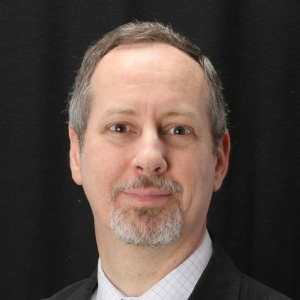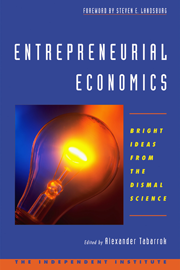In light of the massive failures of U.S. intelligence agencies to avert the events of 9/11, one would believe politicians would be eager to try new and better institutions. Yet, when one such innovative endeavor was recently proposed—the Policy Analysis Market (PAM)—Senators Ron Wyden (D-OR) and Byron Dorgan (D-ND) characterized the idea a “terror market” and before the idea could be rationally debated—let alone tested—the program was terminated.
The ideas behind policy markets are simple and powerful. Markets are well-known aggregators and communicators of information dispersed among multiple individuals. Businesses, economists and the public have long looked to markets to help divine the future. Airlines look to the futures price of oil to intuit the effect of the war in Iraq on oil supplies, Wall Street watches interest rates to help predict future actions by the Federal Reserve, one economist has even used orange juice futures to help predict the weather in Florida.
Most markets are primarily for trade with information as a byproduct. But in recent years markets have been created specifically for the express purpose of ferreting out and gathering information.
The best known of these “information” or “prediction markets” is the on-going Iowa Political Stock Market. The Iowa market lets traders use real money to buy and sell “shares” of political candidates. A share in George W. Bush, for example, pays $1 if President Bush wins the next election and nothing otherwise. If the market price for a Bush share is 75 cents, this suggests that market participants think President Bush has a 75 percent chance of winning the next election.
In its 15 years of experience the Iowa Political Stock Market has proven more accurate than traditional polling techniques in predicting U.S. and foreign elections, primaries and other political events. The Iowa markets have themselves passed the market test—in tight elections professional bond traders, who often have millions of dollars riding on post-election economic policies, monitor the Iowa markets for evidence about future events.
Private industry—traditionally the earliest adopter of innovative ideas—has also been much more receptive to the new idea of information markets than has the Senate. Hewlett-Packard has used an information market to predict future hardware sales. HP had used traditional surveys and questionnaires to uncover this information but found that its methods were not adequately conveying the collective expectations of its sales force—and certainly not in an easily digestible, manager-friendly format. HP discovered that information markets predicted actual sales significantly better than their official forecasts.
The problem that HP faced, of accurately collecting and aggregating information from field agents and conveying that information to decision makers, is exactly the same problem faced by our intelligence agencies.
Predicting future printer sales is not the same thing as predicting events related to terrorism, but the differences are not as great as one might at first imagine. Contrary to impressions in the media, the primary purpose of the PAM was not to predict individual events of terrorism but rather to predict inputs into terrorism, such as the economic growth rates of countries in the Middle East, political instability, and military activity.
As well, new combinatorial methods devised by Robin Hanson—a chief architect of the PAM—were to be used to help predict events conditional on U.S. actions. What would happen to unrest in the Middle East if the U.S. withdrew its troops in Saudi Arabia. How would Jordan fare politically if the “roadmap” were successfully implemented. Would casualties from terrorism increase or decrease if the U.S. were to invade Syria?
If information markets can help professional bond traders and businesses why not security risk analysts? Despite being attacked by sound-biting senators, the evidence strongly suggests this innovative approach to intelligence gathering and processing could have improved the capability of intelligence services. In this regard, PAM could be useful to private firms such as insurance companies, travel companies and firms doing business in the Middle East and elsewhere.
As with so many other ideas, private firms may take up the PAM approach before government sees its value.
Critics of the Policy Analysis Market dismissed it as frivolous “gambling.” But decades of experimental economic research—lead by Vernon Smith [member of the Board of Advisors at The Independent Institute] who received the Nobel Prize for his contributions—have shown that requiring participants to “put their money where their mouth is” motivates them to think seriously about the events that they are betting on and thus leads to better predictions.
Critics also said the markets were in bad taste. It is true that the PAM markets dealt in unpleasant things, but that is the fundamental nature of the intelligence business. Every decision that the President makes regarding security is a gamble involving money and lives. Adults know this and are not shocked when some of the gambles are explicitly quantified.
Earlier we said that markets required people to put their money where their mouths are, but another advantage is that these markets allow traders to put their money where their mouths aren’t. The yes-man phenomena means that information doesn’t rise from the field to the decision-makers. And sometimes the bosses don’t want to hear what the field has to say. Remember the CIA and FBI analysts who repeatedly tried to signal their worries about terrorism to their superiors but were rebuffed? In contrast, a PAM would produce a public and easily understood number that would be difficult to ignore.
Would these markets encourage terrorism? Of course not. First, the bets made in these markets were to be limited to $100—enough to make the traders think seriously about their bets but not enough to motivate any terrorists. Second, it should be obvious that if terrorists want to make money they can do so far more easily and more anonymously by taking positions in the real financial markets—sadly, for example, they could have shorted airline stocks prior to 9/11.
Markets, of course, like all institutions, are not perfect. Instead of predicting future revenues, the market prices of many dot.com stocks seemed to reflect belief in the greater-fool theory. But the issue is not whether markets are perfect but how they compare with other institutions.
Is the current U.S. intelligence system perfect? Obviously not. Indeed, one might even suspect that even such a hallowed institution as the Senate sometimes acts foolishly.








